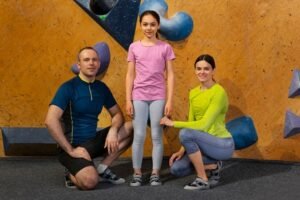
physical education jobs
Introduction
Physical education (PE) is a critical component of the educational curriculum, promoting physical fitness, healthy habits, and teamwork among students. As the importance of health and wellness becomes increasingly recognized, the demand for physical education jobs is on the rise. This article explores the diverse opportunities within the field of physical education, the qualifications required, the benefits of a career in this sector, and future trends shaping the industry.
The Scope of Physical Education Jobs
Physical education jobs encompass a wide range of roles, from traditional PE teachers in schools to specialized fitness trainers and sports coaches. The scope of these jobs includes:
- PE Teachers: These professionals work in elementary, middle, and high schools, teaching students about physical fitness, sports, and healthy lifestyle choices. They develop lesson plans, assess student performance, and promote an active lifestyle.
- Fitness Trainers and Instructors: Often found in gyms, health clubs, and community centers, fitness trainers design and implement workout programs for individuals and groups. They provide guidance on exercise techniques, nutrition, and overall wellness.
- Sports Coaches: Coaches work with athletes at various levels, from amateur to professional, helping them improve their performance in specific sports. They develop training programs, provide tactical advice, and foster teamwork and sportsmanship.
- Recreational Therapists: These professionals use exercise and recreational activities to help individuals recover from injuries, manage chronic conditions, or improve their overall quality of life. They work in hospitals, rehabilitation centers, and community organizations.
- Athletic Directors: Typically employed by schools or colleges, athletic directors oversee sports programs, manage budgets, and ensure compliance with regulations. They play a key role in promoting athletic excellence and ensuring the smooth operation of sports activities.
- Health Educators: While not exclusively focused on physical activity, health educators often incorporate physical fitness into their programs. They work in schools, healthcare facilities, and community organizations to promote healthy behaviors and lifestyles.
Qualifications and Skills Required

To pursue a career in physical education jobs, certain qualifications and skills are essential:
- Educational Requirements: Most physical education jobs require at least a bachelor’s degree in physical education, kinesiology, sports science, or a related field. Advanced positions, such as athletic directors or collegiate coaches, may require a master’s degree or higher.
- Certification and Licensing: Depending on the specific job and location, certification or licensing may be required. For example, PE teachers need state certification, while fitness trainers often hold certifications from organizations like the American Council on Exercise (ACE) or the National Strength and Conditioning Association (NSCA).
- Skills and Attributes: Successful professionals in physical education jobs possess strong communication and interpersonal skills, as they work closely with students, athletes, and clients. They must be knowledgeable about anatomy, physiology, and exercise science. Additionally, they should be motivational, patient, and able to adapt to different needs and abilities.
Benefits of a Career in Physical Education
Pursuing a career in physical education offers numerous benefits, including:
- Positive Impact on Others: Physical education professionals play a crucial role in promoting health and wellness. They help individuals adopt healthier lifestyles, improve their physical fitness, and achieve their athletic goals.
- Job Satisfaction: Many individuals in physical education jobs report high levels of job satisfaction. The opportunity to see students and clients achieve their fitness goals and improve their well-being can be incredibly rewarding.
- Diverse Career Opportunities: The field of physical education is broad, offering various career paths. Whether you prefer working with children in schools, coaching athletes, or helping clients in a gym, there is a physical education job to match your interests and skills.
- Growing Demand: With increasing awareness of the importance of physical fitness and the rise of lifestyle-related diseases, the demand for physical education professionals is expected to grow. This trend provides job security and opportunities for advancement.
- Flexibility and Variety: Physical education jobs often offer flexible schedules, especially for fitness trainers and recreational therapists. Additionally, the work is varied, preventing the monotony that can come with some careers.
Challenges in the Field

Despite the many benefits, physical education jobs also come with challenges:
- Physical Demands: Many physical education jobs require a high level of physical activity. Professionals must maintain their own fitness and stamina to effectively perform their duties.
- Job Stability: While demand is growing, some positions, particularly in education, can be affected by budget cuts and funding issues, leading to job instability.
- Work Hours: Depending on the specific job, work hours can be irregular. Coaches and trainers often work evenings, weekends, and holidays to accommodate the schedules of their students or clients.
- Emotional Strain: Working closely with individuals to achieve their fitness goals can be emotionally taxing. Professionals must be prepared to handle setbacks, injuries, and varying levels of motivation among those they work with.
Future Trends in Physical Education Jobs
Several trends are shaping the future of physical education jobs:
- Technology Integration: The use of technology in physical education is on the rise. From fitness apps and wearable devices to virtual training programs, technology is enhancing the way physical education professionals interact with and support their clients.
- Holistic Wellness: There is a growing emphasis on holistic wellness, which includes not only physical fitness but also mental and emotional well-being. Physical education professionals are increasingly incorporating mindfulness, stress management, and nutrition into their programs.
- Inclusive Fitness: The focus on inclusive fitness is increasing, with professionals striving to make physical activity accessible to all, regardless of age, ability, or socioeconomic status. This trend is leading to more specialized roles and training within the field.
- Preventative Health: As the healthcare system shifts towards preventative care, the role of physical education professionals is becoming more important. They are playing a crucial role in preventing chronic diseases through exercise and healthy lifestyle promotion.
- Global Opportunities: Physical education jobs are not limited to one region or country. With the globalization of fitness trends and sports, there are opportunities for professionals to work internationally, broadening their horizons and experiences.
Conclusion
The field of physical education offers a wide array of job opportunities for those passionate about promoting health and fitness. From teaching and coaching to fitness training and recreational therapy, physical education jobs cater to a variety of interests and skills. While the profession comes with its challenges, the benefits, including job satisfaction, diverse career paths, and the potential for positive impact, make it a rewarding career choice. As trends like technology integration, holistic wellness, and inclusive fitness continue to shape the industry, the future of physical education jobs looks promising and full of opportunities. For those committed to fostering healthy lifestyles and improving the well-being of others, a career in physical education is both fulfilling and impactful.




